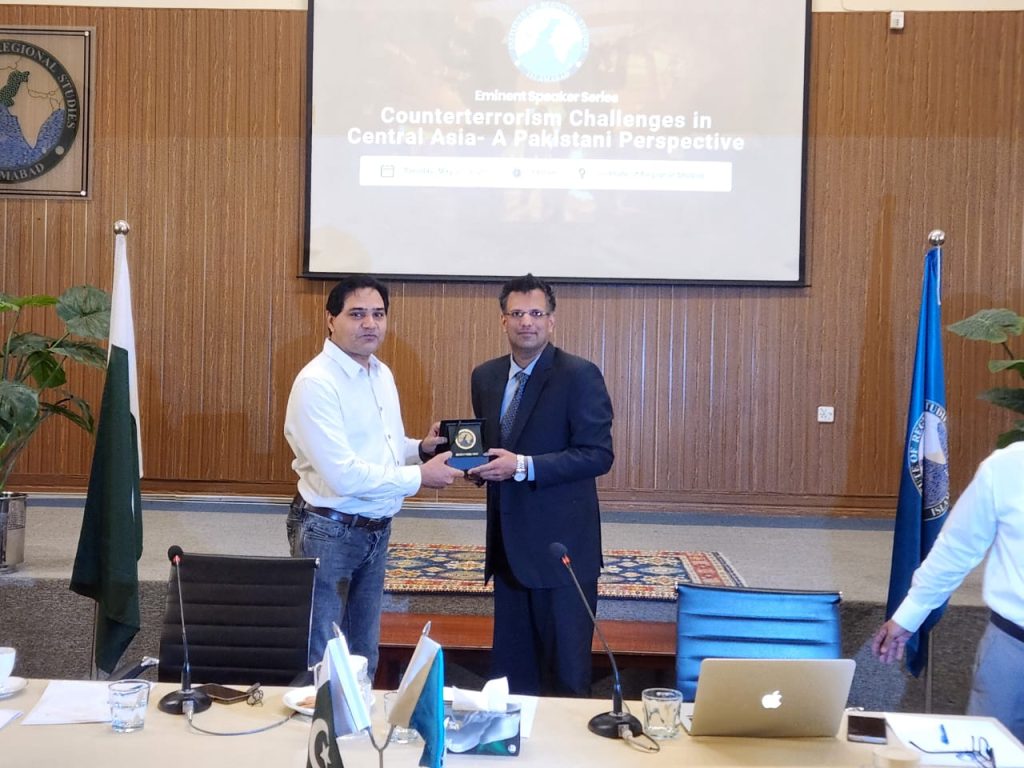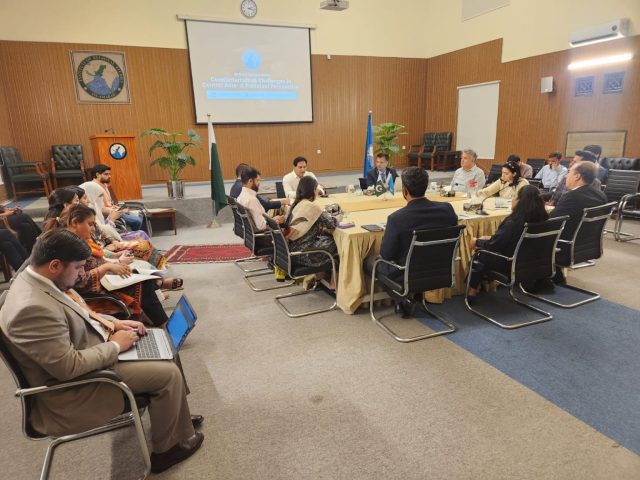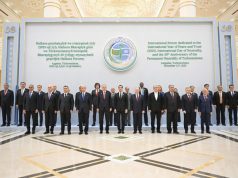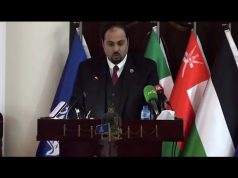ISLAMABAD, Saturday, May 31, 2025 (WNP): Counterterrorism expert and President of the Pakistan Institute for Peace Studies (PIPS), Amir Rana, delivered an in-depth lecture at the Institute of Regional Studies (IRS) Islamabad, focusing on evolving security dynamics in Central Asia and their implications for Pakistan.
The lecture, held under the Institute’s Eminent Speaker Series, was titled “Counterterrorism Challenges in Central Asia: A Pakistani Perspective.” According to an official statement, Rana provided a nuanced overview of the shifting threat landscape, drawing parallels with Pakistan’s own counter-extremism experience.
He lauded Central Asian nations for their clear and firm stance against violent extremism, particularly their decisions to outlaw radical groups and political entities that threaten public order. He emphasized that Pakistan must adopt similarly decisive and inclusive policies to curb extremism and promote long-term stability.

“Terrorism demands a holistic and objective strategy—one that is rooted in political will and supported by societal resilience,” Rana remarked.
Highlighting the ongoing threat posed by groups like ISIS-Khorasan (ISKP) and Al Qaeda, he cautioned against complacency, stressing that ideological movements—ranging from North Africa to Southeast Asia—continue to influence regional narratives and present enduring risks.
A central theme of his talk was the dismantling of terror financing networks. Rana advocated for tighter regulatory frameworks, improved financial monitoring, and enhanced intelligence cooperation to sever funding channels for extremist groups. He also underscored the importance of regional platforms such as the Shanghai Cooperation Organization (SCO) in orchestrating a coordinated response to cross-border terrorism.
“Security in Central Asia is intrinsically linked to the strategic decisions made in South Asia. Cooperation, not complacency, must define our regional approach,” he concluded.
The session drew a diverse audience of diplomats, scholars, and security analysts, fostering robust dialogue on shared regional threats and future counterterrorism collaboration.
In a related development, Uzbekistan’s Ambassador to Pakistan, Alisher Tukhtaev, called on Khyber Pakhtunkhwa Governor Faisal Karim Kundi in Islamabad to discuss deepening bilateral ties.
Both sides expressed satisfaction over the strengthening of relations following Prime Minister Shehbaz Sharif’s recent visit to Uzbekistan. Governor Kundi stressed the need to increase trade delegations and economic cooperation as a means to regional stability.
The two leaders explored extending the Uzbekistan-Afghanistan railway to Peshawar, enhancing regional connectivity. They also agreed on launching direct flights between Islamabad and Tashkent to bolster people-to-people exchanges.
Ambassador Tukhtaev proposed expanding bilateral trade in high-quality sports goods and welcomed the participation of Uzbek construction firms in Pakistan’s infrastructure sector, particularly in Khyber Pakhtunkhwa. He noted that around 3,000 Pakistani students are currently enrolled in Uzbek universities, reflecting strong educational ties.
Governor Kundi reaffirmed Pakistan’s brotherly relations with Uzbekistan and invited the ambassador to visit Peshawar for meetings with local business leaders. The ambassador, in turn, invited the governor to Tashkent with a high-level delegation.
The meeting concluded with a decision to declare Peshawar and the Uzbek city of Termez as sister cities—a move expected to enhance cultural and economic cooperation between the two regions.




